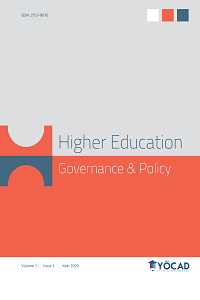Abstract
References
- Shin, J. C., & Lee, S. J. (2015). Evolution of research universities as a national research system in Korea: Accomplishments and challenges. Higher Education, 70, 187–202.
Abstract
This study investigates the accomplishments of national initiatives for building research universities in South Korea. Focusing on the top six research universities, it analyzes whether they have achieved world-class university status in terms of three dimensions: sufficient research funding, talented human resources, and shared governance and academic freedom. Through government initiatives such as the Brain Korea 21 project, the Korean government actively invests in university research because of its importance to the country’s economic development. As a result, the research productivity of Korean universities has grown immensely. This study’s findings suggest, however, that despite this rapid growth and strong financial support, Korean research universities are still lacking in terms of the quality of their doctoral education, and have not yet achieved shared academic governance and a culture of academic freedom. The study concludes that Korean research universities still have challenges to overcome before they can be considered truly world-class universities.
Keywords
Research university Research funding Talented human resources Shared governance Academic freedom South Korea
References
- Shin, J. C., & Lee, S. J. (2015). Evolution of research universities as a national research system in Korea: Accomplishments and challenges. Higher Education, 70, 187–202.
Details
| Primary Language | English |
|---|---|
| Subjects | Other Fields of Education |
| Journal Section | Research Articles |
| Authors | |
| Publication Date | June 30, 2021 |
| Published in Issue | Year 2021 Volume: 2 Issue: 1 |


